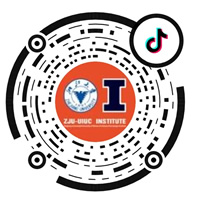1.Electrical Engineering
a. PROGRAM OVERVIEW
Electrical engineering is a multifaceted discipline and has produced an astounding progression of technological innovations that have shaped virtually every aspect of modern life. It is a rapidly evolving discipline based on the application of math, physics, and computation to address the needs of our networked information-age society.
b. CAREER PROSPECTS
Graduates will work in a variety of fields including:
- communications and wireless networks
- electromagnetics, optics, remote sensing
- energy, power and transportation
- signal, image, and speech processing
- robotics and control systems
- semiconductor materials and integrated circuits
- nanotechnology and quantum devices
- lasers, biomedical sensing and probing, acoustics
- operating systems and software engineering
- networking and information security
c. DISTINCTIVE CHARACTERISTICS
A broad and solid foundation of mathematics and physics
An emphasis on innovation and design of sensing, communication, computing, and decision-making systems of increasing complexity in various application domains
d. SAMPLE COURSES
- Introduction to ECE
- Introduction to Computing
- Analog Signal Processing
- Digital Signal Processing
- Probability with Engineering Applications
- Fields and Waves I
- Power Circuits and Electromechanics
- Green Electric Energy
- Semiconductor Electronics
- Electronic Circuits
- Computer Systems Engineering
2. Computer Engineering
a. PROGRAM OVERVIEW
Computer engineering develops students’ understanding of a computer system from top to bottom – from application software to operating systems to hardware and circuits. It prepares students to create the wide array of computing systems and devices that we all use and depend upon every day.
b. CAREER PROSPECTS
Graduates will work in all segments of the broad and thriving computer industry, including:
- software engineering
- programming
- computer system architecture
- microprocessor/hardware design
- realtime and embedded systems
- operating systems
- human machine interfaces
- artificial intelligence
- image and speech processing
- cloud computing and big data
c. DISTINCTIVE CHARACTERISTICS
A broad and solid foundation of mathematics, and computing skills
A large degree of flexibility in the curriculum that enables students to pursue topics of interest among the many sub-disciplines in computing
d. SAMPLE COURSES
- Introduction to Computing
- Computer Systems & Programming
- Computer Systems Engineering
- Digital Signal Processing
- Digital Systems Laboratory
- Applied Parallel Programming
- Computer Organization and Design
- Computer Security
- Distributed Systems
- Computer Networks
3. Mechanical Engineering
a. PROGRAM OVERVIEW
Mechanical engineering is one of the most diverse programs in the field of engineering. It affects almost all aspects of our lives and embraces many areas of specialization: automotive systems; bioengineering; combustion and propulsion; design methodology and tribology; dynamic systems and controls; energy systems and thermodynamics; fluid mechanics; heat transfer; manufacturing and production; materials behavior and processing; and micro-scale and nano-scale phenomena and systems.
b.CAREER PROSPECTS
Graduates will work in technical leadership and management positions in such fields as:
- Manufacturing, energy and transportation.
- Aerospace
- Defense and security
- Computer software and electronics
- Automotive
- Environment
- Health and biological engineering
- Research and development
- Robotics
- Thermal systems
- Industrial automation
c. DISTINCTIVE CHARACTERISTICS
The curriculum is designed as a sequence of increasingly specialized experiences.
1st Year: mastering the basics of science
2nd Year: taking fundamental engineering courses
3rd Year: taking specialized mechanical engineering courses in the subfields of mechanical engineering, e.g. mechanical design, and manufacturing
4th Year: broadening and deepening knowledge of the field through technical elective courses
Engineering design, communication, teamwork, and laboratory experiences are integrated throughout the curriculum.
d. SAMPLE COURSES
- Computer-Aided Design
- Design for Manufacturability
- Internal Combustion Engines
- Introduction to Robotics
- Mechanobiology







